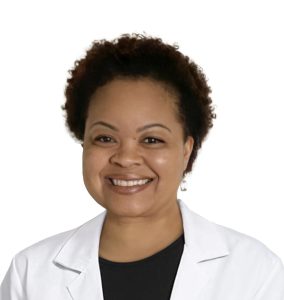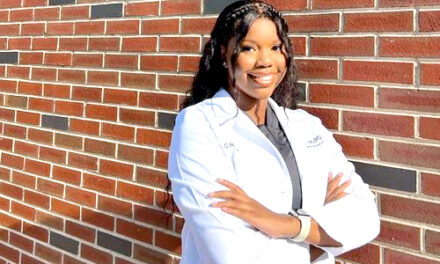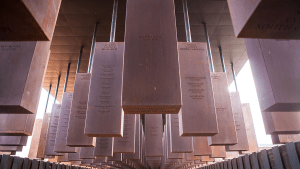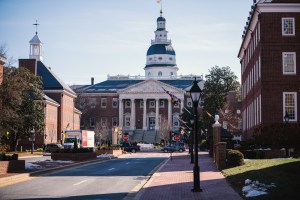By Reginald Williams,
Special to the AFRO
According to the Healthcare System Performance Ranking, America ranks last in access to care, healthcare outcomes, and administrative efficiency. Simultaneously, the great United States is the most expensive healthcare system in the industrial world. Despite being one of the wealthiest nations worldwide, America’s citizens and healthcare systems are unhealthy.
Patients, especially those navigating the traumatic acceleration in anxiety, depression, and other illnesses due to the pandemic, are expanding how they address their health concerns. An integrative healthcare option growing in population is acupuncture. The ancient Chinese practice dates back centuries to 100 BCE (before common era) is the technique of balancing energy flow through the meridian, an energetic pathway in the body.
“There are 12 main meridians, which are connected to specific organs and glands. The meridian’s pathways provide Qi (pronounced chee), nourishment to every cell, muscle, gland, organ, and tissue in the body,” said Tierra Hardin, an acupuncture and traditional Chinese medicine practitioner. “It helps with stress management and emotional challenges.”
Hardin is founder of Noble Integrative Health Experts and contends that acupuncture is great for overall health and wellness. She is not alone in her thinking.
Sonya McMillian, a licensed clinical professional counselor, swears by the calming practice.
“I have noticed a lot less back pain and infrequent headaches. I am also more relaxed and calmer.”
“The effectiveness of acupuncture in the treatment of anxiety and stress has been studied and confirmed,” said McMillian.
Researchers say stress-related hormones create an inflammatory effect that can worsen chronic conditions and awaken dormant symptoms. Scientists have also studied the release of endorphins produced by acupuncture needles.
By itself, acupuncture creates a positive change in brain activity. The combination of acupuncture and Chinese herbs has been clinically proven to improve sleep and defeat insomnia, while acupuncture in combination with antidepressants provides greater relief greater than that experienced with the medication alone, according to an article written by Sharon Sherman, a licensed practitioner of Chinese Medicine.
Many experts in the field are speaking from first hand experience.
Hardin is more than a practitioner– she’s also a patient. One year after returning home from a tour of duty in armed conflict in Afghanistan, she suffered severely from anxiety, depression, and physical pain.
“I have personally seen and experienced the benefits of acupuncture accompanied with herbs in my own health journey,” said Hardin. After enduring three brain surgeries, Hardin’s neurosurgeon was impressed that she wasn’t using pain medication. Instead, she chose to use acupuncture and essential oils to manage her pain.
People too often attempt to minimize their health when they don’t feel well. But self-care is a message beginning to resonate with the public. Hardin believes that being committed to your health journey is self-care and self-love.
“Our bodies give us warning signs when it’s not balanced,” explained Hardin. “Some signs are subtle. However, if ignored over a long period of time, illnesses can become chronic.”
Acupuncture differs from western medicine. It seeks to get to the root cause of the issue rather than medicate it. Although western medical care isn’t faring well worldwide, Hardin believes it is essential to include it in one’s holistic health prevention.
“I am a firm believer in the east [Chinese] meets west [America] approach to healing,” explained the Campbellsville, Ky. native. “I don’t discourage anyone from seeking help from western medicine. Using technology, with images and diagnosis, is beneficial.”
As beneficial as acupuncture proves to be, many people will forgo the treatment for fear of needles. Grandma’s pinch is much more painful than the pinch produced from an acupuncture prick.
“Some people openly express their fear of needles,” explained Hardin. “I explain to people that the acupuncture needles are very small, smaller than the hypodermic needles they see in the doctor’s office. But some people have a genuine phobia of needles.”
Located in College Park, Md., on Baltimore Avenue, Hardin treats autoimmune disorders, women’s health, respiratory issues, neurological disorders, digestive issues, emotional trauma, pain and stress management, and addiction.
One of McMillian’s clients used acupuncture in their addiction treatment plan. “I had a client use acupuncture while in residential treatment,” said McMillian. “He reported that the treatment helped with his craving for both drugs and nicotine.”
Hardin also provides therapy (cupping, nutrition, and moxibustion) and prescribes Chinese herbal medicines.
Prospective clients can book an appointment with Hardin by visiting www.nobleinteghealth.com.
Reginald Williams, the author of “A Marginalized Voice: Devalued, Dismissed, Disenfranchised & Demonized” writes on Black men and Holistic Health concerns. Please email bookreggie@reginaldwilliams.org or visit amvonlinestore.com for more information.
Help us Continue to tell OUR Story and join the AFRO family as a member –subscribers are now members! Join here!
The post Acupuncture: don’t be afraid of the needles that heal appeared first on AFRO American Newspapers .











